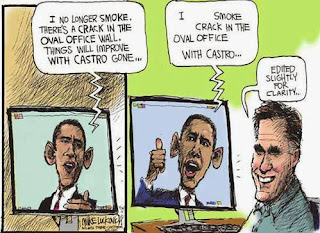All through the semester, I have centered this blog on the theme of
Media Bias. Every day we encounter news that has a bias perspective on it,
whether we realize it or not. We are susceptible to the media and the power it
has in swaying our opinion. The media spoon-feeds us what we want to hear. The
more we believe their stories, the more they are going to report and misinterpret
information to us. They report stories, but it is usually never the full story.
They tend to leave out details. These certain details can totally change the
course and meaning of a story. Fox will tell the right-winged side of the
story, to make their conservative view look good. MSNBC will tell the
left-winged side of the story, to make their liberal view look better. It is an
ongoing and never-ending cycle. Always be sure to read information from both
sides. You will see the full perspective and pick up on information you might
have not gotten from the other source. Fair.org is a very insightful website that
helps a reader pick out legitimate sources worth reading. Fair stands for
fairness and accuracy in reporting. It provides tips, and details on those
tips, for helping pick out bias in news media. This society depends on
social media and fast and efficient news. It is easy to have miscommunication
with information. Many sources are not credible enough and readers will believe
the first thing they read without following up on it. We need to slow our pace
and read more carefully. What we misinterpret might be exactly what the
politics and media want us to do.
This cartoon's play on the phrase, "Hear no evil, see no evil, speak no evil," is a good way of breaking down media bias, except they replace it with truth. All news networks are in a competition
to have power over media. Each station is known for having a dominant,
particular point of view; either moderate or liberal. When it comes down to it,
they all do not completely tell the truth. NBC, ABC, CBS, MSNBC, and all other
networks will never report a story on politics that does not support their
viewpoint. That is why you have to look at all of them when it comes to wanting
to know the fully story of a hot, political topic.








